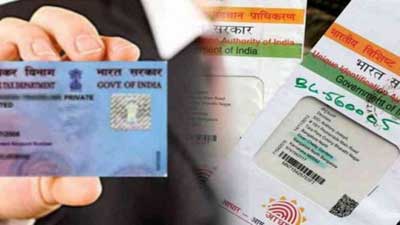Trust Registration
The concept of ‘trust’ relates to the ancient times. When the properties were dedicated for charitable, pious, religious, social welfare, educational, medical purposes. The Trust laws came to India via English Trust law which stipulates dual ownership of trust property i.e. legal title vests with the trustee while equitable title vests with the beneficiary. On this basis, Indian Trusts Act 1882 was enacted.
A ‘trust’ is an obligation annexed to the ownership of property and arising out of a confidence reposed in and accepted by the owner, or declared and accepted by him, for the benefit of another or of another and the owner.
Indian Trust Act has no application to public or private, religious or charitable endowment.
Advantages
SERVICE MOTIVE
You can lend help to charities by creating a charitable trust that may award money to the needy people while you're still alive. It would give more money in case of your death followed by regular payments out of the remainder. There is a possibility of limited liability in case of a corporate trustee.
TAX PLANNING
Assets transferred into trust are no longer considered as belonging to the Settlor, so the income and capital gains generated by those assets are taxed according to the rules governing the legal owner – the Trustee. Inheritance tax would be eliminated because the Trustee would continue in existence despite the death of the Settlor. Anti-avoidance legislation in the home country of the Settlor, or in the location of the trust assets, may seek to counteract this outcome but a correctly structured and administered trust should produce substantial tax savings.
ASSET PROTECTION
Trusts can be one of the most effective ways of protecting assets. In simple terms, assets transferred to a trust no longer form part of the Settlor’s property, so the trust assets cannot be seized if a Settlor gets into financial difficulties. This is an oversimplification of the law. Under certain circumstances, the transfer into trust may be set aside and a court may order the trust assets to be transferred back to the Settlor.
CONFIDENTIALITY
Unlike the sole trader structure, a limited company is a legal ‘person’ in its own right, with an entirely separate identity from its owners and directors. As a result, companies can enter into contracts in their own name and are responsible for their own debts and liabilities.
LIMITED LIABILITY
Limited liability is possible if a corporate trustee is appointed. the structure provides more privacy than a company. there can be flexibility in distributions among beneficiaries.
Get Expert Assistance
Company Registration
DOCUMENTS REQUIRED FOR REGISTRATION
IDENTITY AND ADDRESS PROOF
- Aadhar Card, Aadhar number is now a necessity for applying for any registration in India.
- Income tax return can only be filed if the person has linked his PAN card with Aadhar number.
- Address proof will be required for all directors and shareholders of the company to be incorporated.
- For Indian nationals, PAN is mandatory. For foreign nationals, apostilled or notarised copy of passport must be mandatorily submitted.
- Residence proof documents like bank statement or electricity bill should not be more than 2 months old.
- All documents submitted must be valid

MINIMUM REQUIREMENTS
- The author or the settler of the trust.
- The trustee.
- The beneficiary.
- The trust property or the subject-matter of trust
- The object of the trust.
- The instrument of trust.
REGISTERED OFFICE PROOF
- Register office of all companies must be in India .If it is a Rented Property, Rent agreement and NOC from a landlord. If it is a Self-owned Property, Electricity bill or any other address proof.
- Documents submitted must be valid and not more than 2 month old.

PROCESS
NAME OF THE TRUST
Give At Least 3 Options In The Order Of Preference Of Name Of A Trust.
PREPARATION OF THE TRUST DEED
The First Step Is To Draft The Trust Deed. Trust Deed Is Non Mandatory But Is Desired As It Is Enforceable By Law. The Following Details Should Be Mentioned In Deed:
- Name And Address Of The Settler (Settler Is The Person Who Is Setting Up The Trust)
- Name(S) And Address (Es) Of The Other Trustees
- Name Of The Trust (Minimum 3 Preference Shall Give)
- Minimum And Maximum Number Of Trustees
- Address Of The Registered Office Of The Trust
- Objectives Of The Trust
- Rules And Regulations Of The Trust.
PARTIES TO THE TRUST
Three Parties Are Required To Form The Trust.
Applicant /Author Of The Trust
- The Author Is The Person Who Declares Confidence In The Trust. The Name & Address Of The Author Shall Be Mentioned In Deed.
TRUSTEES /MEMBERS
- The Trustee Should Not Be A Minor & Be Of Sound Mind. Mention Full Name, Address, Occupation & Age, And Designations Of The Trustees / Members.
BENEFICIARY OF THE TRUST
A Person Who Is Going To Be Benefitted By The Formation Of Trust. Usually, Author Himself Is The Beneficiary Or It Is Public At Large.
OBJECTS OF THE TRUST
Trust Can Be Formed For Charitable Purposes Only. The Detailed Objective Of Trust Shall Be Incorporated Indeed.
SUBJECT MATTER
The Subject Matter Of The Trust Is The Property In Respect Of Which The Trust Has Been Created. The Subject Matter Shall Be Defined And Property Of Trust Shall Be Capable Of Disposition To Create A Valid Trust.
REGISTRATION OF THE TRUST BY TRUST DEED
After Preparation Of Trust Now Another Step Is To Register The Trust Deed. Registration Is Not Compulsory But Is Needed To Get The Trust Registered Under The Income Tax Act For Availing The Exemptions And More Over A Deed Is A Prima Facie Evidence Of The Existence Of A Trust. The Trust Deed Shall Be Submitted To The Local Registrar Along With The One Photocopy And Settler Shall Sign All The Pages.
TENURE OF TRUSTEES
Tenure Shall Fix Minimum 1 Year To Maximum 5 Years.
FREQUENTLY ASKED QUESTIONS
- A trust can be formed as per Section 4 of Indian Trust Act 1882 for a lawful purpose;
- A trust should have a document written and signed by trustees or a sole trustee;
- A trust can be formed through a will also;
- There is no definite form to create a trust.
- Objectives of the trust should be clear and unambiguous.
For certified copy of MOA & RR for a registered society a fees of Rs.1/- per page will be charged. Application to this effect should contain the Name, Reg. No and must be signed by the General Secretary or the President of the society. After approval for registration, a fee of Rs 50/- in cash is charged. The Registrar of Society on satisfaction of documents Issue a Registration Certificate to the Society.
Trusts are registered using a document called TRUST DEED. This document contains all the information about the Trust. Along with these papers you would need to attach a Non-Judicial stamp paper. All the Trustees and witnesses will have to signatures on the Trust Deed.
- Obtaining a PAN card for the society from the Income Tax Department.
- Opening a Bank account for the society for the regulation of funds of the society.
- Getting the exemption under Section 80 (G) of the Income Tax Act for exempting the donations from taxation.
- Getting clearances from RBI for receipt of foreign funds in the society.
